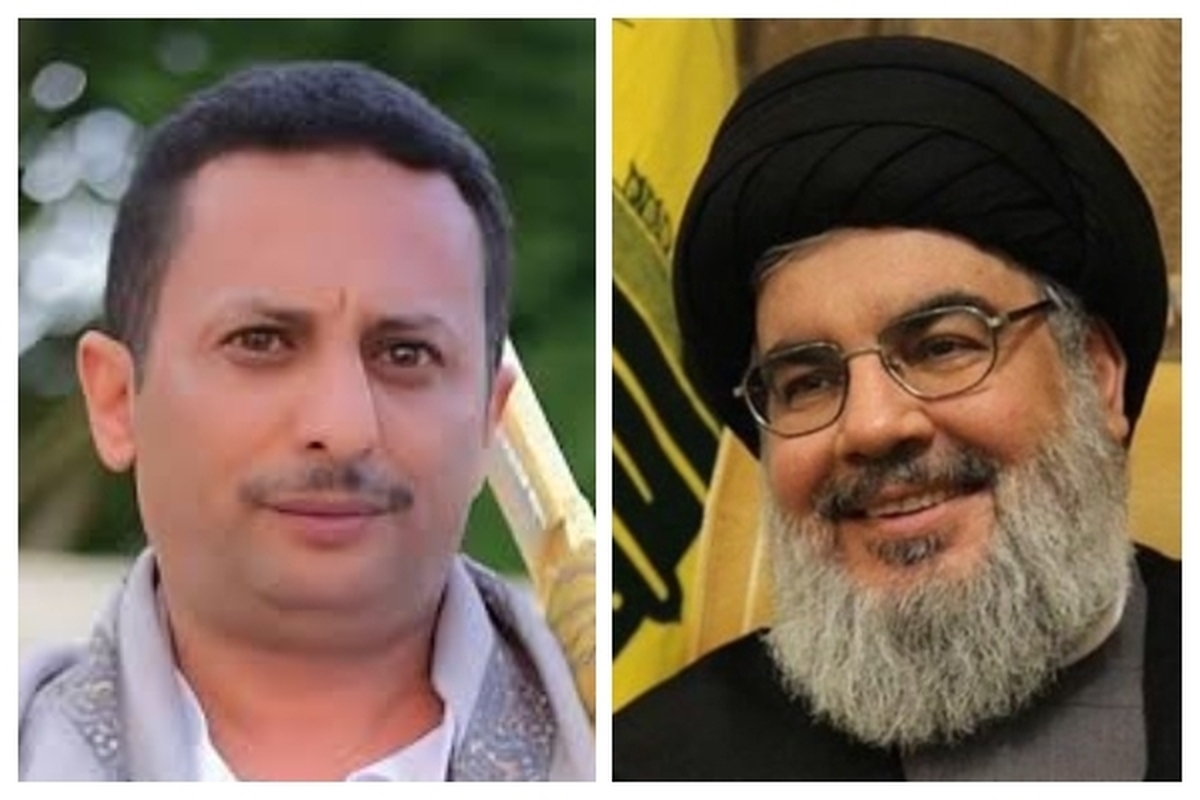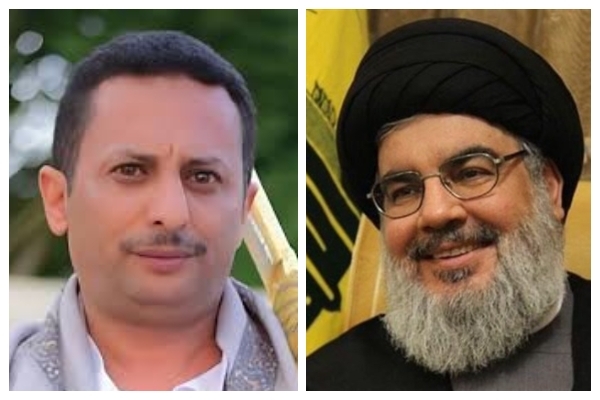Nasrallah Passed Torch of Resistance to Yemen: Analyst


“Their love became a chain that connected Beirut and Sanaa and thwarted all the enemy’s plots,” Adnan Abdullah Junaid told IQNA in an interview on the occasion of the first anniversary of the martyrdom of Nasrallah, the former secretary general of Lebanon’s Hezbollah resistance movement.
He talked, among other things, about the role and position of Nasrallah in the axis of resistance. Following is the text of the interview:
IQNA: What are the characteristics and traits that distinguished Nasrallah’s school and led to his influence in the hearts of the free people of the world?
Junaid: The school of this martyred leader is nothing but an extension of the Muhammadan and Alawi light tree. He learned from the school of the great prophets of God and the school of Imam Hussein (AS), as an inspiring leader, how to extract victories from the depths of the defeated.
He transformed the resistance from an idea to a community, and from a community to a nation that walks on its feet. His leadership was distinguished by features that were close to miraculous. These features were:
Creator of the hidden state: He built the small state of the resistance; transformed Hezbollah into a regular military system and a vast network of social services; and transformed local and national loyalty into a permanent strategic asset.
The enchanter of narratives: He was a master in the art of turning failure into the potential for success; he excelled in linking failure to victory, every martyr creates an army and every missile writes a new history.
The philosopher of flexibility: He combined the firmness of principles with the flow of water and became a regional leader who transcended the borders of Lebanon, fighting in one arena and negotiating in another with the same revolutionary heart.
The engineer of one voice: He created a collective language that merged multiple voices into a single compass, a voice heard from Beirut to Tehran and feared from Tel Aviv to Washington.
Read More:
IQNA: What is your analysis of the future of the resistance in Lebanon and the region after the martyrdom of Sayed Hassan Nasrallah?
Junaid: For us, martyrdom is not the end of the road; rather, it is a seed that has been buried by the enemies and they will be surprised by a multitude of resistance fighters. His pure body disappeared, completing his miraculous absence. His blood became a code that is passed down from generation to generation, activating the spirit of revenge and victory.
The future depends on these facts:
He planned his absence and left behind collective leadership, and the party’s solid structure and well-written programs ensure that this approach will continue unwaveringly.
Attempts to exploit the vacuum and political pressure will quickly crumble against the rock of divine planning.
Time will prove that his martyrdom was more painful to his enemies than his life; his life was a deterrent, while his martyrdom will be a storm.
IQNA: One of the priorities of Martyr Nasrallah, in addition to jihad and resistance, was his familiarity with the Quran. To what extent were his decisions inspired by Quranic knowledge?
Junaid: He was a speaking Quran. He based his decisions on the insight into the words of God Almighty: “And prepare for them whatever you can of force and ready horses” (Verse 60 of Suran Al-Anfal), and he transformed power into a doctrine.
He was also inspired by the words of God: “So whoever transgresses against you, transgress against him as he transgresses against you.” (Verse 194 of Surah Al-Baqarah), and transformed retribution into a precise military calculation.
He combined religious authority with political realism and transformed the verses of jihad into military plans. His establishment of the resistance was a practical translation of the divine promise of victory for the patient.
Read More:
IQNA: To what extent do you believe the absence of Nasrallah will affect the pressure exerted to disarm the resistance in Lebanon?
Junaid: The dream of disarmament was shattered with the first bullet that landed on the body of the most holy martyr. He turned his martyrdom into an invincible weapon. His blood linked the weapon to the ideals of the earth and the sky, so that its removal would mean the removal of the soul from the body of the nation. Field fortifications are the determining factor, not the opponents' statements.
IQNA: How do you see the stance of Martyr Nasrallah in supporting the Palestinian cause and the resistance of the oppressed Palestinian people?
Junaid: He is the only Arab leader who did not sell Palestine cheaply in the oil market and false relationships. He has the greatest achievement in transforming the Palestinian resistance from the Stone Age to the era of precision missiles. He created training centers for them, introduced missiles, and enabled them to manufacture weapons. The stability of Gaza today is the fruit of his thought and planned design, to the point where every fighter in the tunnels carries a piece of his soul with them.
IQNA: How do you assess the following of Martyr Nasrallah to the orders of the Leader of the Islamic Revolution and the obedience to the Wali Faqih (Guardianship of the Jurisprudent)?
Junaid: He was the most prominent example of a leader who, with the insight of the Divine Guardianship, saw what politicians could not see. His loyalty to the Wali Faqih was not devotion, but rather an elevation to the level of a strategic vision that went beyond physical boundaries.
He combined deep loyalty with Lebanon’s decision-making independence when necessary.
Read More:
IQNA: What is your opinion about the role of Martyr Nasrallah in building the global identity of the Lebanese people?
Junaid: He not only built the Lebanese identity, but also the identity of the ‘resistant human being’ that transcends all borders. He turned the Lebanese into citizens of the whole world when they defend the cause of justice.
He transformed Lebanon from a small country on the map to a great nation in the conscience of the oppressed. Under his leadership, the Lebanese are no longer defined by their sectarian affiliation, but by their affiliation with the axis of resistance and freedom.
IQNA: What role did Martyr Nasrallah play in shaping the discourse of resistance and its impact on regional security and relations?
Junaid: He redefined resistance in the modern era. He transformed it from a reaction to a preventive measure, and from a covert military force to a state that imposes new deterrence equations. He exposed the lies of the West and its claims to protect rights and humanity. He created a parallel security system that held the security of the Zionist regime hostage to any mistake it made, thus turning any event in Lebanon into a regional spark.
IQNA: Tell us about his deep love for Abdul Malik Al-Houthi?
Junaid: This love is the love of souls that meet on the ladder of Wilayah before they meet on earth. Nasrallah looked with Quranic certainty and wished he were a soldier under the banner of the brave leader of Yemen. Nasrallah passed the torch of resistance to the leader of Yemen, Abdul Malik al-Houthi, to complete the approach and project of liberating the holy places. Their love became a chain that connected Beirut and Sanaa and thwarted all the enemy’s separatist plans.
Sayed Hassan Nasrallah represented a new era. His school was a Quranic and prophetic school that laid the foundations of resistance for generations. His blood not only watered the soil of Lebanon, but also became the pulse of the veins of every free person in this land. He changed all equations. He turned death into life, defeat into victory, and surrender into leadership. His school will remain like a shining star in the night of the oppressed, terrifying and thwarting the plans of arrogance, because it is truly the school of the prophets.
4307802



